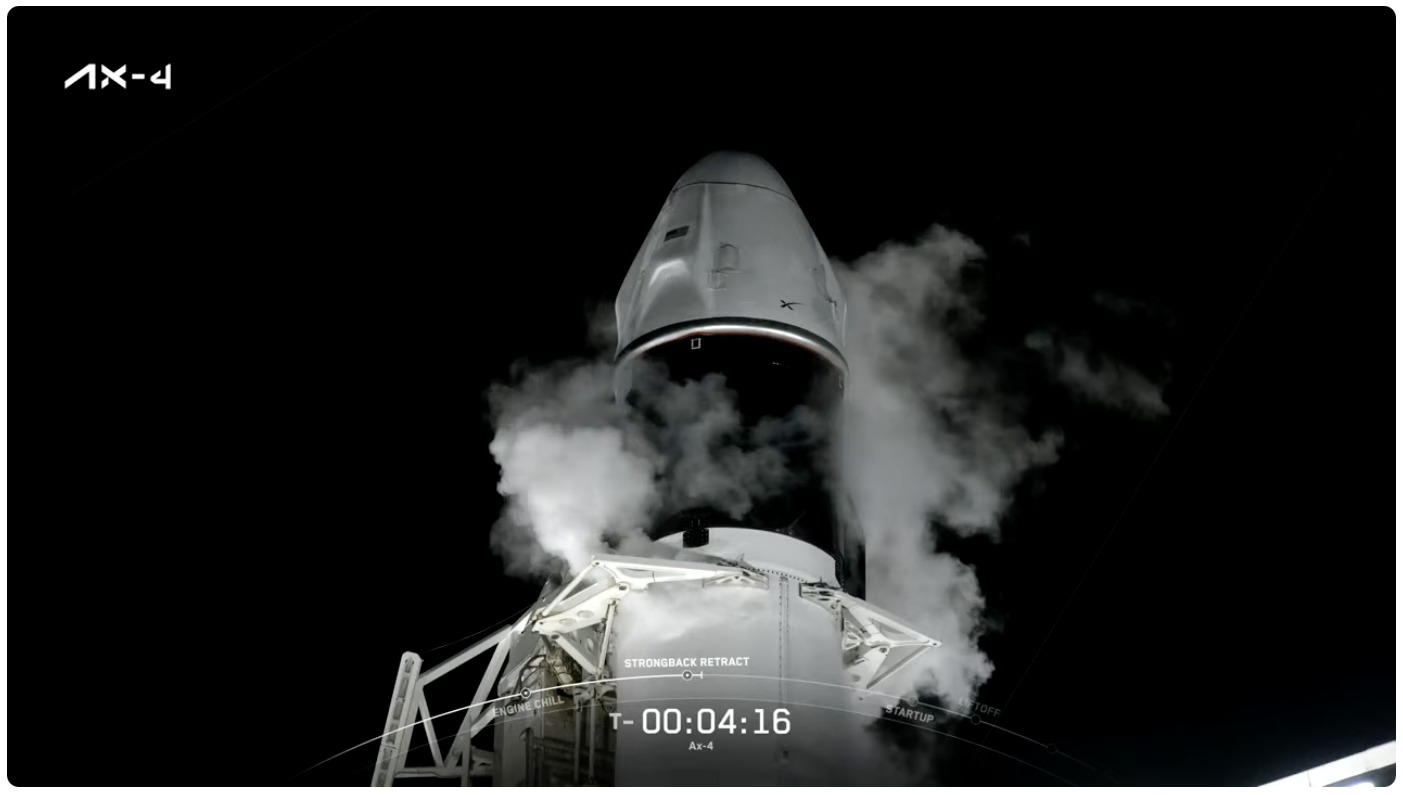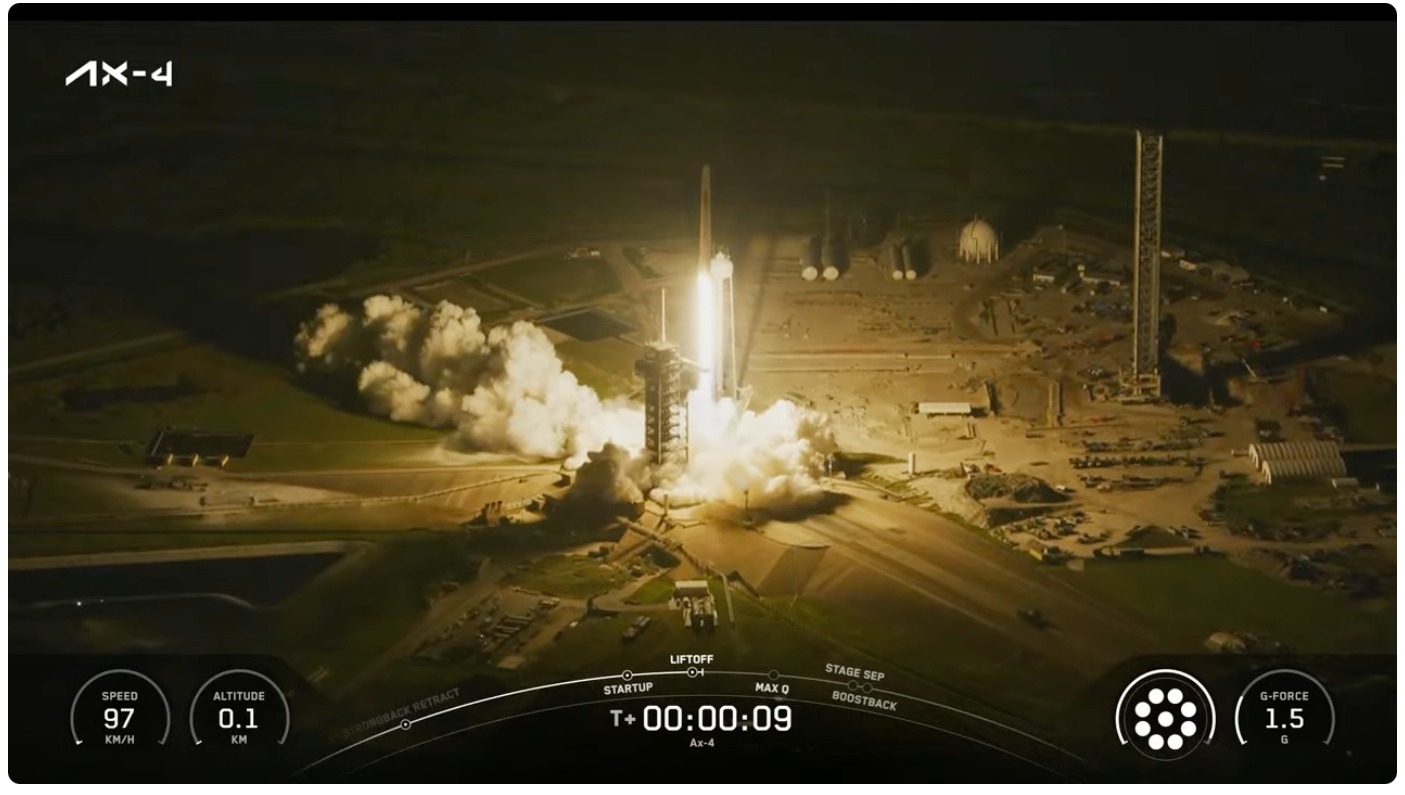A Historic Moment for India in Space
India has marked a monumental return to human spaceflight with the successful launch of Axiom Mission 4 (Ax-4), sending Shubhanshu Shukla into space. This is the first time in over four decades that an Indian has entered orbit, and tomorrow, he will make history again by becoming the first Indian ever to board the International Space Station (ISS).
This mission, carried out by Axiom Space in partnership with NASA and SpaceX, not only commemorates India’s past achievements but also signals a promising new era for Indian participation in international human space exploration.
Axiom Mission 4: A New Paradigm for Private Spaceflight
The Ax-4 mission is the fourth in a series of private space missions organized by Axiom Space, utilizing SpaceX’s Crew Dragon capsule and Falcon 9 rocket. Launched from Kennedy Space Center, Florida, the mission is part of a broader movement to commercialize low Earth orbit and integrate private astronauts with ISS operations.
This marks a shift from solely government-driven missions to collaborative, globally inclusive commercial missions that foster international representation.
Key facts about the mission:
- Launch Date: June 24, 2025
- Vehicle: SpaceX Falcon 9 with Crew Dragon
- Mission Duration: ~14 days
- Destination: International Space Station (ISS)
- Partners: Axiom Space, NASA, SpaceX, international agencies

Who is Shubhanshu Shukla?
Shubhanshu Shukla, a decorated aerospace professional and test pilot, has etched his name in history by becoming the first Indian in space since Rakesh Sharma’s 1984 mission aboard the Soviet Soyuz T-11.
Unlike his predecessor, Shukla’s journey is part of a commercial and multinational mission, reflecting India’s growing role in global space cooperation. Trained under the Axiom program and supported by Indian agencies, Shukla has undergone rigorous training to work alongside astronauts from multiple countries aboard the ISS.
His background includes:
-
Profession: Test pilot and aerospace engineer
-
Training: Conducted in Houston and Cologne under NASA/ESA guidance
-
Role on ISS: Conducting biomedical and material science experiments
India’s Re-entry into Human Spaceflight

India’s last human spaceflight representation was 41 years ago, and since then, ISRO has focused on satellite missions, Mars and Moon exploration, and developing indigenous launch capability. The upcoming Gaganyaan mission will be India’s first crewed orbital mission—but Axiom-4 has bridged that long gap, showcasing India’s readiness and global relevance.
This mission also demonstrates:
-
India’s interest in low-Earth orbit science platforms
-
A willingness to collaborate internationally
-
A growing private sector space ecosystem
The Road to the International Space Station
After today’s successful launch, the Crew Dragon capsule is expected to dock with the ISS on June 26, 2025. Once aboard, Shubhanshu Shukla will participate in:
- Scientific experiments from Indian and international universities
- Educational outreach events to inspire young Indians
- Collaborative work with astronauts from NASA, ESA, and JAXA
His presence on the ISS is not just symbolic—it’s functional and meaningful, contributing to research that will impact both Earth and future deep space missions.
Public Reaction and National Pride
The news of Shukla’s spaceflight has stirred widespread excitement across India. From social media celebrations to government commendations, the moment is being hailed as a resurgence of Indian manned space ambition.
Educational institutions are hosting live streams and webinars to follow his time on the ISS. The Indian Prime Minister and ISRO officials have congratulated the mission team and reaffirmed support for India’s independent human spaceflight program.
What’s Next for India in Space?
Following this historic milestone, India is looking ahead to:
- Gaganyaan: ISRO’s indigenous human spaceflight mission, scheduled for 2025–26
- International collaborations on space stations, Moon bases, and Mars orbiters
- Public-private partnerships to advance commercial space ventures
Shukla’s mission is likely to inspire a generation of students, researchers, and entrepreneurs to dream bigger—whether for science, industry, or exploration.
More Than a Launch—It’s a Legacy
The successful launch of Axiom-4 and Shubhanshu Shukla’s historic journey isn’t just about breaking a four-decade absence; it’s about redefining India’s position in the modern space race. As the first Indian ever to set foot on the ISS, he paves the way for a future where Indian astronauts, companies, and innovations are integral to the global space ecosystem.
India is back in orbit—and this time, it’s here to stay.